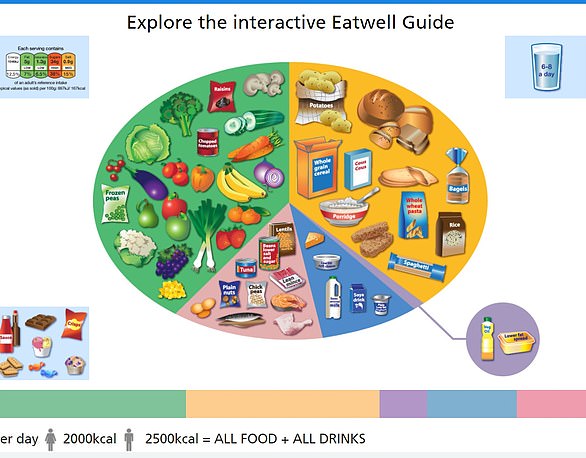For some people, turning down a chocolate chip cookie or a piece of cake seems relatively easy, while for others it’s a huge mental battle.
Now, experts have discovered that people with higher BMIs actually need a greater change in brain activity to choose healthy foods instead of their favorite snack.
Researchers at Queen’s University in Ontario analyzed data from three MRI studies involving 123 participants who indicated what they would prefer to eat in different scenarios.
They compared the patterns of brain activity shown when participants made choices after being instructed to focus on healthy eating.
Experts have found that people with higher BMIs actually need a greater change in brain activity to choose healthy foods instead of their favorite snack. Researchers at Queen’s University of Ontario analyzed data from three MRI studies involving 123 participants who indicated what they would prefer to eat in different scenarios.
The analyzes revealed that people who were best able to regulate their dietary choices needed relatively small changes in brain states to achieve their goal, and this was very evident in people with low BMI.
However, participants with high BMI could not rely on this mechanism and required larger changes in brain activity to choose healthy foods.
In a paper published in the journal Proceedings of the National Academy of Sciences (PNAS), the researchers said: “More than 18 percent of the global adult population is projected to be obese by 2025, showing widespread difficulties in adopting healthy diets.” “.
‘We examined how brain states change when making natural and regulated dietary choices in a set eating task.
«People with a lower weight level could successfully modify their eating behaviors while maintaining similar modes of brain activity.
“Heavier people couldn’t rely on this mechanism.”
The team said their findings may help explain why some people have difficulty controlling their diet while others do not.
However, they said they cannot determine whether difficulty choosing healthy foods is what leads to weight gain, or whether weight gain leads to changes in the brain that make it difficult to choose healthy options.


